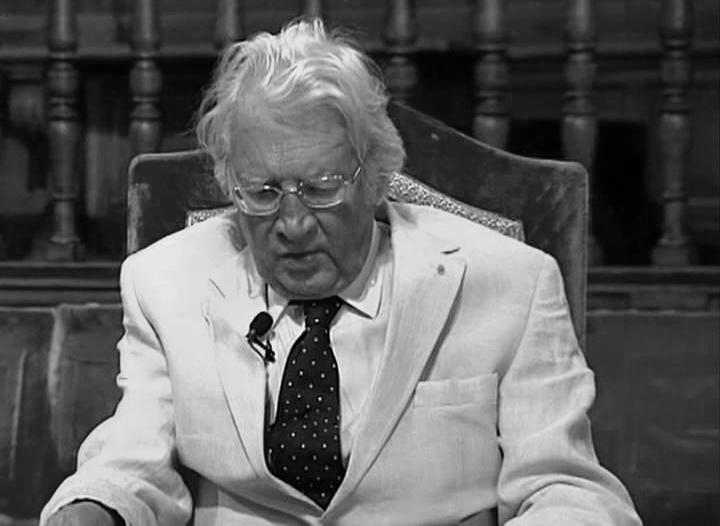Hugh Thomas, obituary: British historian who covered the Spanish Civil War and Charles V
Thomas was an adviser to Margaret Thatcher, playing a key role during the Falklands war with his knowledge of Latin America

Your support helps us to tell the story
From reproductive rights to climate change to Big Tech, The Independent is on the ground when the story is developing. Whether it's investigating the financials of Elon Musk's pro-Trump PAC or producing our latest documentary, 'The A Word', which shines a light on the American women fighting for reproductive rights, we know how important it is to parse out the facts from the messaging.
At such a critical moment in US history, we need reporters on the ground. Your donation allows us to keep sending journalists to speak to both sides of the story.
The Independent is trusted by Americans across the entire political spectrum. And unlike many other quality news outlets, we choose not to lock Americans out of our reporting and analysis with paywalls. We believe quality journalism should be available to everyone, paid for by those who can afford it.
Your support makes all the difference.Hugh Thomas, who has died aged 85, was a bestselling historian who wrote an account of Spain’s civil war that was described as “the bible of the Spanish left” and who later became an adviser to Margaret Thatcher.
On 2 May 1982, Prime Minister Manuel Ulloa of Peru spoke on the phone with Hugh Thomas. The two were in constant communication during much of the Falklands War, as Ulloa, who also had close contacts in Argentina, hoped to broker peace between the warring parties.
But this phone call was of particular importance. Ulloa revealed that the Belgrano, an Argentine warship, had been sunk in what was to be the conflict’s bloodiest episode. Thomas informed No 10, which was aware that British torpedoes had struck the ship but not that it had actually gone down.
It may have seemed surprising that Thomas, a popular history writer, would have been feeding war intelligence to the UK government. But at the time he was an adviser to Margaret Thatcher, who relied on his knowledge of, and contacts in, Latin America.
Little presaged such a political role, especially on behalf of a Conservative prime minister. Thomas, who was born in 1931 in Windsor, was at first more closely associated with the left. His first book, a pamphlet on disarmament, was published in 1957 by the Fabian Society. Though the son of a colonial commissioner and himself a former student of the University of Cambridge, where he presided over the Union, he called in early writings for the destruction of Britain’s “fusty Establishment”. At one point he was a prospective Labour candidate.
But it was his book The Spanish Civil War, published in 1961, the year he turned 30, that made him a figure notable on the left and notorious in Francoist Spain. The book, translated into Spanish by an anarchist publisher exiled in France, was banned by General Franco because it challenged state propaganda. It was smuggled across the border by the thousand and seized in hundreds of police raids on the homes of anti-regime activists. The hispanist Paul Preston called it “the bible of the Spanish left”.
Thomas’s politics later shifted to the free-market right. In 1979 he became chair of the Central Policy Unit advising Thatcher and two years later was made Lord Thomas of Swynnerton. He first sat with the Conservatives before crossing the floor to the Liberal Democrat benches in 1997, because of his distaste for the Tories’ growing Euroscepticism. Eventually he became a crossbencher.
But his real passion was history: he once bemoaned how his political activities had hampered his research into the imperial policies of Charles V. Thomas was among the last of a dying breed of historians who could write for the layman on a wealth of subjects, while sacrificing neither rigour nor nuance. He worked most of his life outside academia, spending only a decade as a history professor, at the University of Reading.
His interests included Spain, the broader Hispanic world, empire and slavery. But he also wrote a history of the Cuban revolution, another on the beginnings of the Cold War and even a history of everything, playfully titled An Unfinished History of the World.
His works, often monumental in length, are felt by some to be indigestible, but the epic narrative style that characterises them usually staves off boredom. His last book, the third volume of a trilogy about the Spanish Empire, appeared in 2014.
He is survived by his wife Vanessa and their three children.
Hugh Thomas, Lord Thomas of Swynnerton, born 21 October 1931, died 7 May 2017
Join our commenting forum
Join thought-provoking conversations, follow other Independent readers and see their replies
Comments